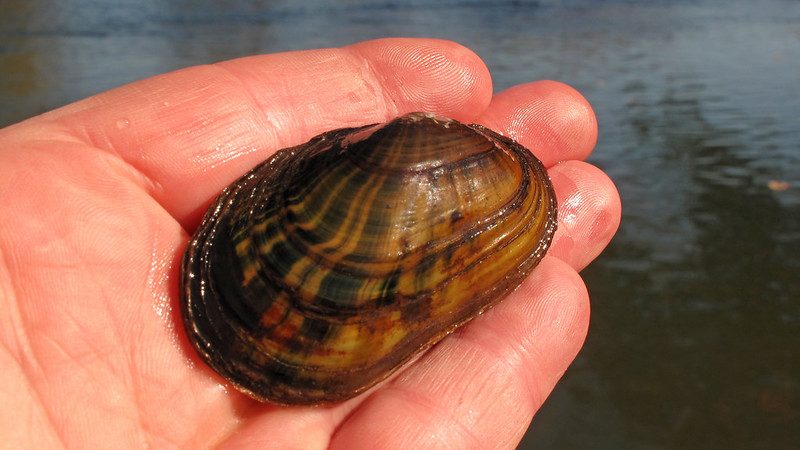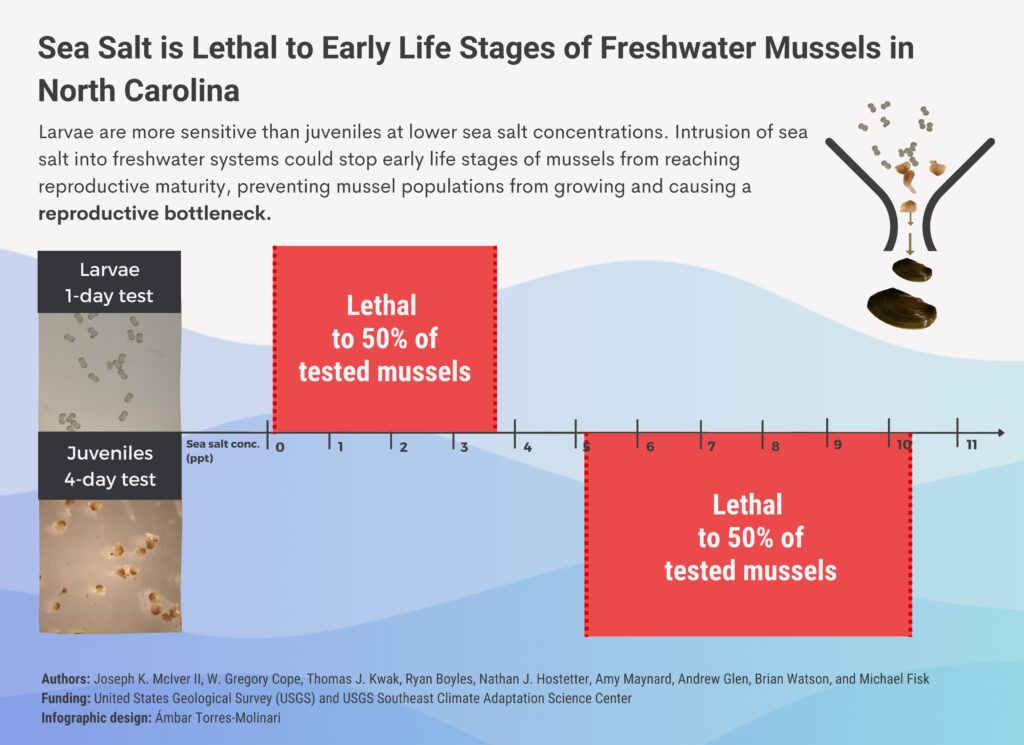Impacts of Sea Level Rise and Associated Salinity Changes on At-risk Native Freshwater Mussels and Their Habitats in Atlantic Coastal Rivers

Project Information
Principal Investigator(s): Greg Cope, NC State University, Tom Kwak, USGS NC Cooperative Fish and Wildlife Research Unit
Project Completion: August 2023. This project is now complete.
Implements Science Plan Theme: Impacts and Adaptation
Project Cooperators: Sarah McRae (US FWS), Todd Ewing (NC Wildlife Resources Commission), Brian Watson (VA Dept of Game and Inland Fisheries), Robert Bringolf (U. Georgia)
Overview
Sea levels across the planet are rising, and particularly along the eastern coast of the United States. Climate-induced sea level rise can result in the inundation and intrusion of seawater into freshwater drainages. This can alter salinity regimes and lead to the salinization of coastal freshwater ecosystems. Increased salinity levels in freshwater can negatively affect freshwater dependent species, including native mussels belonging to the order Unionida, which are highly sensitive to changes in water quality.
The aim of this research was to investigate the adaptation and vulnerability potential of a native freshwater mussel living in coastal riverine drainages to climate-induced, sea level rise, specifically fluctuating salinity, temperature, and flow regimes. We accomplished this aim and more by conducting eight separate acute toxicity tests with sea salt and three species (from four populations) of Atlantic Slope mussels. In addition, we also completed two 28-day chronic toxicity tests on sub-adult mussels of two of the three Atlantic Slope species evaluating sublethal effects of sea salt when exposed in reconstituted water or in their natural waters. We discovered that that the glochidia (larvae) were the most sensitive life stage to sea salt and that they represent a critical life history and reproductive bottleneck, meaning that if the larvae cannot survive at these concentrations, then there will be no additional contribution of juveniles or adults to existing populations.
These results greatly advanced the understanding of the mixture toxicity of sea salt ions to native freshwater mussels. Moreover, they provide a set of benchmark values from which to judge future adverse effects on mussel populations in coastal drainages and to understand the critical threshold ion concentrations for their future protection and conservation. Project findings have regional, national, and international applicability because saltwater intrusions into mussel habitat is occurring worldwide.

Relevant Web Posts:
- SE CASC Study Informs Freshwater Mussel Conservation Strategies in Wake of Climate-induced Sea Level Rise
- NCSU Student Wins AFS Award for Presenting SE CASC Research on At-risk Freshwater Mussels
